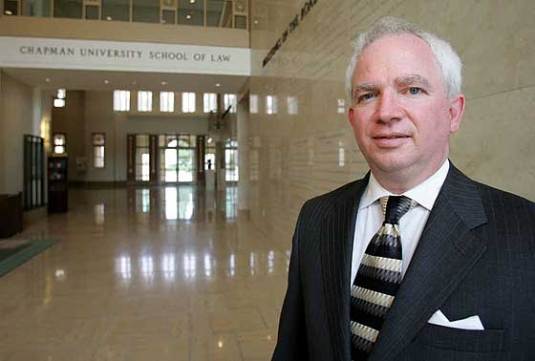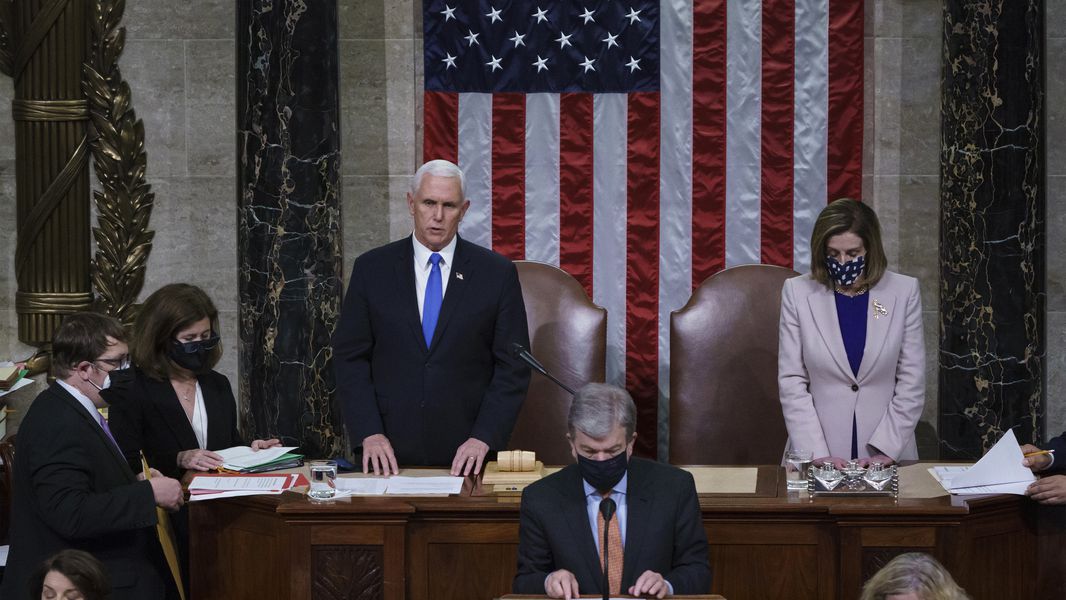John Eastman’s Statement on His Cancelled Participation in a Chapman Law Review Symposium

Chapman University capitulates to cancel culture.
Separation of Powers is a bedrock principle of our constitutional system of government. It is manifest most clearly in the very first provision of Article I of the Constitution—the legislative powers granted to the federal government are vested in Congress. For a long while, that was understood to prohibit the delegation of lawmaking power to anyone else—not the executive branch, not independent agencies, not the judiciary, and certainly not private entities. But that non-delegation doctrine has been a dead letter since the New Deal era of the 1930s.
Acting through the Claremont Institute’s Center for Constitutional Jurisprudence, which I founded in 1999, and with the close collaboration of my colleague, Tom Caso, I have been at the forefront of the effort pressing the Supreme Court to revive the non-delegation doctrine (and to curtail related doctrines that essentially deferred to the administrative state) and restore the Constitution’s important separation of powers principles. Recent decisions by the Supreme Court strongly suggest that my efforts (and those of others) over the past two decades are beginning to bear fruit.
Largely because of my national renown in this area, the development office at Chapman University applied for and obtained a major grant that would support our work. Included in that grant were funds for hosting a conference that would address the issues from a wide range of ideological perspectives. Professor Caso and I offered to coordinate with the Chapman Law Review to have that conference be co-conducted as the annual Law Review Symposium. Most of the participants in that symposium, which due to COVID restrictions is being held via Zoom over three consecutive Fridays, agreed to participate in response to my personal invitation, and the three most prominent—D.C. Circuit Judge Neomi Rao, retired D.C. Circuit Judge and former California Supreme Court Justice Janice Rogers Brown, and Richard Epstein, one of the most prominent legal scholars in the nation—only did so because of close personal relationships with me. I was due to speak at today’s panel on the non-delegation doctrine.
But this week, University Counsel Janine DuMontelle prohibited me from speaking at the conference I was instrumental in organizing. She claims—falsely, in my view—that my mere appearance as a (now) outside speaker would suggest that I have a current and ongoing affiliation with Chapman, which because of my recent retirement I no longer have. This is utter nonsense, and I sincerely doubt that any of the other outside invited speakers would view their participation as implying any formal affiliation with Chapman University. More to the point, the university has parleyed my renown on the subject to obtain both funds and speakers, then barred my participation.
Some have speculated that I withdrew from the conference of my own accord. That is false. I have been prohibited from participating by the university, in what is the latest manifestation of its capitulation to “cancel culture.” The university has done a disservice not only to me, but to the students on the Chapman Law Review who have worked so hard to bring to fruition what was an ideologically balanced conference on an important and current topic of constitutional law. Those students deserved better, as did I.
The American Mind presents a range of perspectives. Views are writers’ own and do not necessarily represent those of The Claremont Institute.
The American Mind is a publication of the Claremont Institute, a non-profit 501(c)(3) organization, dedicated to restoring the principles of the American Founding to their rightful, preeminent authority in our national life. Interested in supporting our work? Gifts to the Claremont Institute are tax-deductible.
Vice President Pence was not asked to reject electoral votes.


